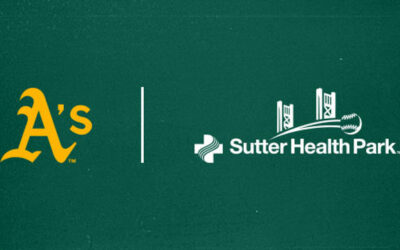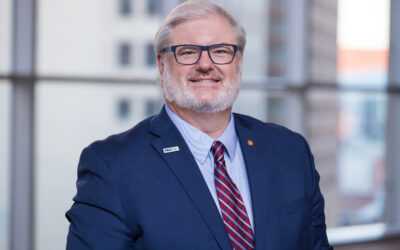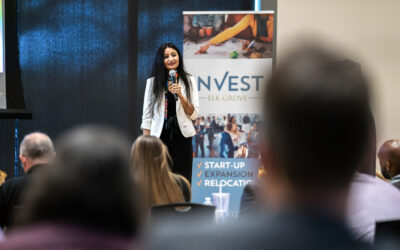FEATURED, INNOVATION
Capitolio de America ' s Fork-to-Farm
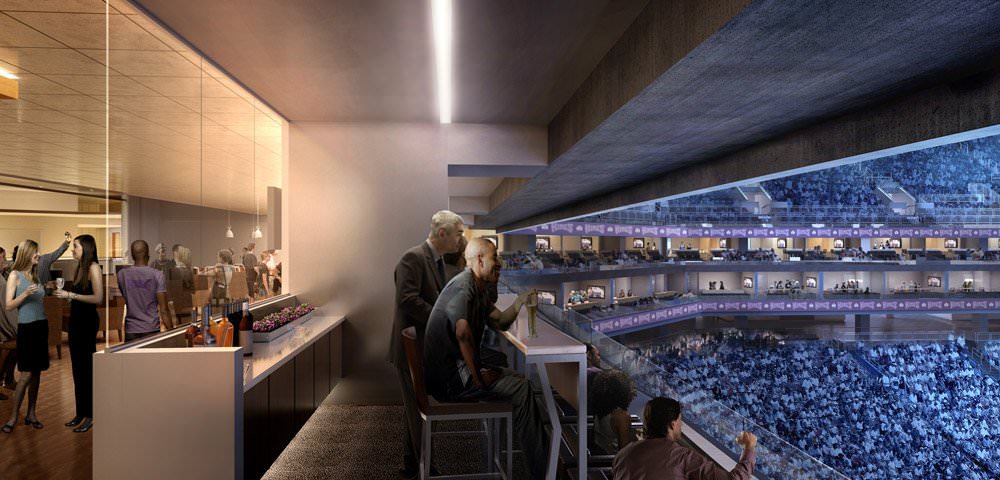
Los Kings de Sacramento se han comprometido con un programa de alimentos y sostenibilidad para los restaurantes y las operaciones alimenticias de la arena. (imagen cortesía de Sacramento Kings)
14 de diciembre de 2016
¿el Capitolio de la bifurcación a la granja de Estados Unidos? Since the opening of the Golden 1 Center this past October, Sacramento startup California Safe Soil has been collecting food scraps from the King’s food vendors and turning it into a liquid fertilizer. The collection of uncooked foods by the arena is part of a Filosofía de la granja a la cancha Kings Chairman and Owner, Vivek Ranadivé, released earlier this year. In it, he identified 10 guiding principles that would govern all food, sustainability, sourcing and recycling activities at Golden 1 Center. "con nuestra nueva arena, Golden 1 Center, vemos una oportunidad para honrar directamente a la gente y los valores de Sacramento", escribió. One of the pledges in that statement includes implementing a new waste management plan that would substantially reduce the landfill footprint of the arena. California Safe Soil uses food that would otherwise be buried in a landfill to help farmers grow more crops with less water and chemical fertilizers. "Sacramento es el Capitolio de la granja a la bifurcación de América." Queremos hacer de Sacramento America ' s Fork-to-Farm Capitol también, "California Safe suelo CEO dan Morash dice." The Kings also announced a plan to source 90 percent of culinary ingredients from growers and producers operating within a 150-mile radius of Golden 1 Center with the support of executive chef Michael Tuohy of Legends Hospitality.
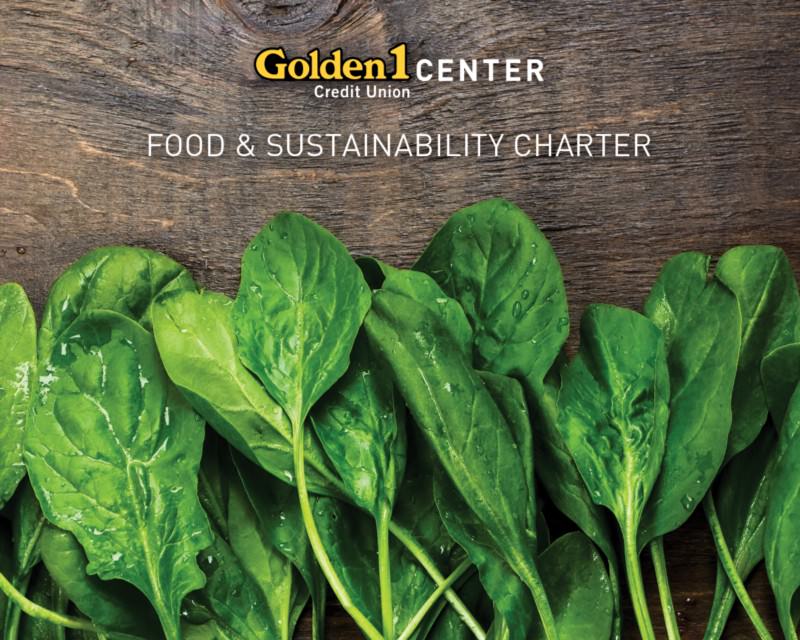
La carta de alimentos y sostenibilidad del rey de Sacramento incluye provisiones para abastecer 90 por ciento de ingredientes culinarios dentro de un radio de 150 millas de oro 1 centro y reducir la huella del vertedero de arena a través de la gestión sostenible de residuos prácticas. (imagen cortesía de Sacramento Kings)
El problema de los desechos alimenticios
Food waste in the United States is a $165 mil millones-Dólar problema. Hasta el 40% de los alimentos que se producen en los Estados Unidos nunca se comen, sino que simplemente se pierden, en todos los niveles de la cadena alimenticia. Los supermercados pierden un estimado de $15 mil millones en frutas y hortalizas no vendidas solo, según el USDA. Where does all this wasted food wind up? In landfills, mostly. In California, 18% of all the trash that goes to landfills comes from food scraps. The problem is not simply one of space. Decomposing food scraps also emit methane, a short-lived, but particularly potent greenhouse gas. A partir del pasado mes de abril, en un esfuerzo por reducir las emisiones de gas metano de los vertederos, una nueva ley estatal (AB 1826) will require businesses in California to recycle their organic waste. The law will also contribute to a statewide goal of reducción, reciclado o compostaje 75% de residuos orgánicos por 2020. The California Air Resources Board recently propuesto to ban the disposal of organic wastes in landfills completely by 2025. How to handle that waste is an open question. According to the California Department of Resources Recycling and Recovery (CalRecycle), la capacidad estatal es sólo un tercio a la mitad de las 10 millones toneladas de desechos orgánicos que terminan en los vertederos de California cada año.
Cerrar el bucle en Sacramento
California Safe Soil owns the intellectual property rights and a few patents for a technology that deals with both of these problems by creating a liquid fertilizer from food waste in a matter of hours. The company’s founder and CEO, Dan Morash, had seen all kinds of different technology in renewable energy and adaptive reuse of waste over the course of a 30-year career as an investment banker on Wall Street. “There weren’t any good technologies for food waste recycling,” he says. When the technology for his product came along, he decided to locate his business in Sacramento for three main reasons. One, the $1.7 billion agricultural market in California, which consists primarily of specialty crops such as fruits, vegetables and nuts. The company decided that local growers of higher margin crops would be more likely to invest in a new product that promises better growth. Localizando junto a la Universidad de California en Davis, una de las universidades agrícolas líderes en el país, proporcionó la investigación que apoyaba la seguridad del producto y sus efectos sobre crecimiento del cultivo. The third main reason to set up here was the capital. “If you plan on building any kind of project in the State of California, you had better know your way around the regulatory situation,” Morash says. The company spent the last four years building these relationships and demonstrating their technology in a pilot facility in West Sacramento, before relocating in October to a new commercial-scale facility at the McClellan Business Park.

El suelo seguro de California recoge los desechos de alimentos no comidos de las tiendas de comestibles y ahora el Golden 1 Center arena y crea un fertilizante líquido utilizando una tecnología de digestión enzimática patentada. (imagen cortesía del suelo seguro de California)
Del supermercado al suelo
California Safe Soil has long-term contracts with all 225 Save Mart supermarkets and several other California grocery chains, including Safeway, Inc., Nugget Markets, Inc., Whole Foods and Grocery Outlet. The company collects the unsold produce, meat, deli and bakery food wastes within two days of being removed from supermarket shelves. In the plant, this waste is ground up, heated and mixed with enzymes before being pasteurized for safety. "los requisitos de capital son bastante modestos, comparados con las tecnologías alternativas como la digestión anaerobia y el compostaje, con una huella ambiental mucho más pequeña, y un producto final más valioso", científicos de la Universidad de California Davis informó el año pasado en la revista de producción más limpia. "dado que el proceso no tiene emisiones de aire significativas, efluentes líquidos, desechos sólidos o olores molestos, es posible obtener todos los permisos de operación necesarios en las zonas urbanas." The whole process takes only a few hours, rather than months, like it does in traditional compost, and results in a liquid, organic fertilizer that farmers buy to grow more fruits and vegetables. In field trials, farmers have reported yield increases up to 33%, while using up to 25% less water and reducing the need for costly nitrogen-based fertilizers.

Plantas dadas el fertilizante líquido del suelo seguro de California crecen más raíces, lo que les ayuda a tomar más agua y fertilizantes del suelo, aumentar los rendimientos y reducir los desechos. (imagen cortesía del suelo seguro de California)
Cómo funciona
The company’s flagship product, Harvest-to-Harvest (H2H), can be applied to crops using existing irrigation drip lines. The fertilizer works by stimulating the growth of a diverse population of microbes in the soil, causing the plant to grow more roots, take up more water and fertilizer, and increase flowering and fruiting. The reality underground is much more complex and is the result of a complex web of interrelationships between the billions of microbes living in soil and the plant roots. Plants get carbon from the atmosphere, during photosynthesis, and use it to create the molecular material they need to grow. However, scientists believe that nearly one-third of that carbon is never used, but is released into the soil through the plant’s roots. If this sounds like a loss, it’s not. The microbes that feed on these nutrient-rich secretions can suppress pathogens in soil, break organic matter into nutrients plants can use, and stimulate root growth, among other things. El objetivo de compostaje, entonces, es replicar este proceso natural y conservar la energía poniendo algunos de estos materiales orgánicos de nuevo en el suelo. H2H simplemente hace que esto suceda más rápido.
Una oportunidad dorada
While most of California Safe Soil’s existing clients are local supermarkets, the company has ambitions to provide their service nationwide, throughout the food supply chain. “One of the appeals of Golden 1, in addition to it being such a landmark for the City of Sacramento, is that it demonstrates one of many other ways that we can make this program work,” says Morash. The Sacramento Kings discovered California Safe Soil at a Concurso de startup the team hosted earlier this year.
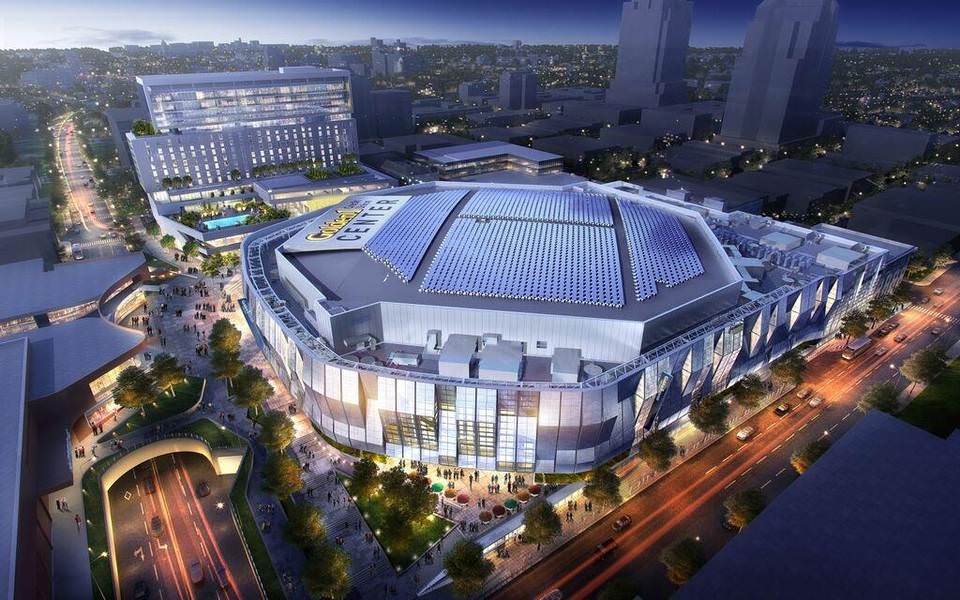
Renderización del centro Golden 1. (imagen cortesía de Sacramento Kings)
La franquicia Kings, dice el Presidente Ranadivé, puede ser "una plataforma para el bien, un Unifier de la comunidad y, en nuestro mejor, un símbolo para la región asombrosa el equipo llama a casa." “When you’re running a league like the NBA, and you’re running a league like the Sacramento Kings, you’re very visible,” says Dr. Allen Hershkowitz, Co-Founder of the NBA Green program, Green Sports Alliance and Green Sports International. “Look at it this way. Billions of dollars are spent every year to advertise with sports venues. Why do companies do that? They do that because they must assume that by affiliating with sports somehow, they are going to influence the culture of the marketplace.” Hershkowitz y los Kings de Sacramento hicieron recientemente una presentación a los 30 presidentes del equipo de la NBA sobre los beneficios de la sostenibilidad. “The situation we’re in is the result of literally hundreds of millions of ecologically ignorant decisions that have been made for centuries. Now we need hundreds of millions of ecologically intelligent decisions to move us forward. And that’s what this represents. The Kings are doing their part,” says Hershkowitz.
Related Articles
Sutter Health Park to Host A’s Baseball
Today, the Sacramento Kings, majority owner of the five-time Pacific Coast League champion Sacramento River Cats, announced that Sutter Health Park will host the A’s for three MLB seasons starting in 2025 with an option for a fourth – ahead of the team’s transition to Las Vegas.
David Sander (City of Rancho Cordova)
David Sander is the mayor of Rancho Cordova and a member of GSEC’s Board of Directors. Learn more about why he values economic development, working with GSEC and living and working in the Greater Sacramento region in the Q&A below.


